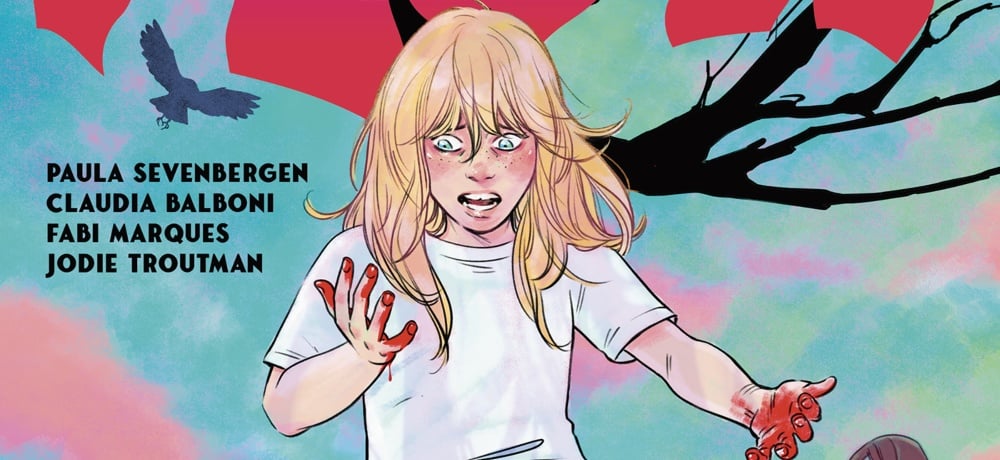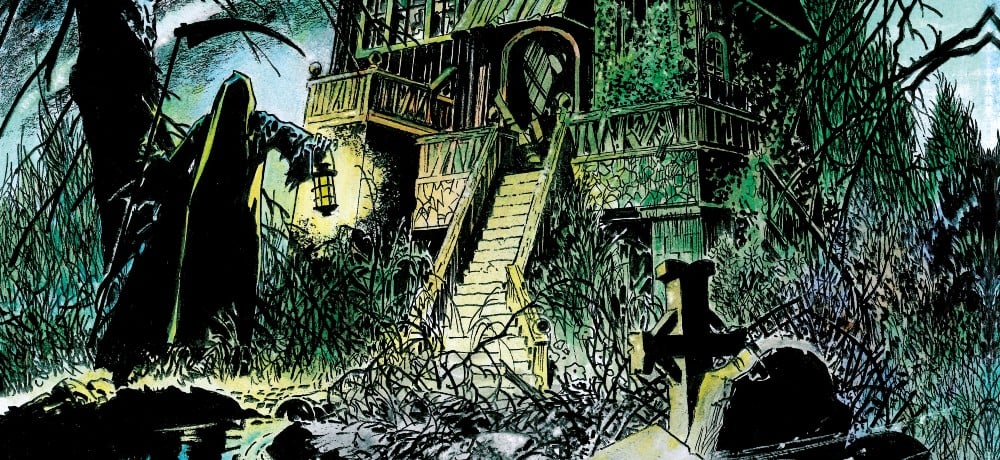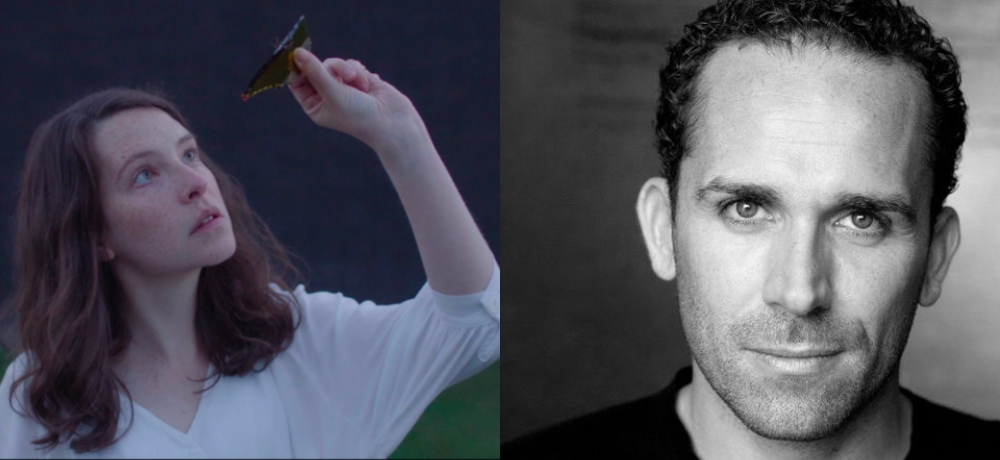






Written by Roger Williams and directed by Lee Haven Jones, The Feast takes place over the course of one evening when a wealthy family hires a young woman to help assist them during a dinner party. Things go awry in some truly disturbing ways once certain truths are revealed, resulting in a hauntingly memorable night where no one is safe.
Starring Anne Elwy, Nia Roberts, Julian Lewis Jones, Steffan Cennydd, Sion Alun Davies, Lisa Palfrey, and Rhodri Meilir, The Feast is set to premiere later today at 8 pm CST as part of the 2021 SXSW Film Festival’s Midnighters slate of programming (you can find out more about the virtual screening HERE).
Recently, Daily Dead had the opportunity to speak with both Jones and Williams about The Feast ahead of the SXSW premiere, and the duo discussed collaborating on the project together, their economical approach to the film, working with Elwy on her character, the film’s unusual locale, and more.
I'm going to actually start with Roger, if that's cool, because I’d love to talk about where this story came from. I love the fact that it's sort of broken down into these different segments and it feels very fairytale-esque, but yet it's very modern, too. I really enjoyed the blending of the Old World versus New World here.
Roger Williams: Well, as with lots of projects, it started with Lee and I making the commitment that we were going to try and make a feature. We've worked together a lot over the years on various television projects and in the theater as well, but we never made a movie together. The process for us is always to find what the common ground is on a project, and also we like to say something when we make the original work as well.
And because we knew we were going to be working in the horror sphere, we started to talk about some ancient Welsh stories called Mabinogion. It's interesting to hear you talk about fairytales, because they're these stories about women being made from flowers and people being transformed into animals, and these magical elements which exist in them.
We started talking about those stories because we very much wanted a film which felt as though it was born from the place that it had been made in. Our way of working is then to talk about those ideas over long afternoons in coffee shops, when we were able to, and to send links to each other of things that we've seen or of other films that we've done, then slowly, the manifesto emerges.
It was pretty much like that with this because we know each other's taste. We had a sense of what we wanted to say, which was essentially the individual's responsibility to the land, but also towards one's heritage and traditions and language and so forth. The story then presented itself, and we had this idea of a family who were living in a very contemporary house, which had been built on the foundations of the family homestead and the house didn't really belong there. It really shouldn't be sitting in the landscape in the way that it does, and then that gave birth to everything that you would see in the film.
Lee, for you, I noticed that you've worked a lot on episodic storytelling and things of that nature. Did all of those experiences help prepare you to take on this feature? And was it a natural transition to go into feature filmmaking? I know inherently that it all involves telling these stories, but I know television often has different scheduling demands and approaches stories a bit differently than cinematic narratives often do.
Lee Haven Jones: I have done quite a bit of episodic storytelling on television and Roger's also done a lot of writing for television, too. We're living in a very different culture now to the one we were living in five, six, seven years ago when we started talking about making a film, because I think television and film were quite far apart then. But with the onset of the streamers and Netflix and Amazon, all the rest of them, I think those two worlds are gradually emerging with film directors doing a lot more television and television directors doing a lot more film.
I think, in a way, because I did a lot of narrative storytelling, I think there was this suspicion that I couldn't probably do a film because I didn't have a cinematic sensibility. The one thing that's great about television is that the schedules are tight. And when you're doing a film like this, where we had 18 days to shoot it, there's a certain rigor in making decisions that is inbuilt within me, really. I'm not a big fan of shooting coverage. I quite like to make editorial decisions on set, much to the frustration of a lot of television producers, but there you go. So, on this, it was great because I had literally had all that freedom, but in a way that was also the drawback, because ultimate freedom is terrifying. It's absolutely terrifying to think that you can do absolutely anything. That was the challenge for me, dealing with the liberty that I had and not, for example, covering a scene and just deciding to tell the story in an economical kind of way.
You mention economical storytelling, and the dialogue in this is very economical in terms of not a lot of people are saying a lot, but the themes of this movie come through really clearly. It's almost like tumblers falling into place throughout the story, and I think that learning what to say and not to say as a storyteller is something that’s hard to balance, but you guys do a great job with that on The Feast.
Lee Haven Jones: Ambiguity is our friend, I think. You were referring to television earlier, and maybe that's one of the things that happens in television a lot is where situations are overexplained. It's actually part of the process that Roger and I would have. I'd say, "Do you think we need this?" And then he'd say, "No, you're absolutely right." Or, "No, I think we do need that because of this."
Roger Williams: You don't want to overexplain something, but you don't want to allow the audience to be confused, either. But a little bit of confusion is a good thing. Howard Barker, who was a rather magnificent playwright, who the Europeans love, and the English and the Americans hate because he's so abstract, but he says that art is a problem of understanding. I think that that's one of those maxims that I try to operate myself. If there's an element of ambiguity, it draws the audience in and it engages them creatively with the material, which I think is really important.
The entire cast is fantastic in this, but Annes drives this movie in a very unusual way and her performance is a lot of things, but I was left mainly heartbroken by her character. Lee, can you discuss working with her on the role of Cadi?
Lee Haven Jones: That's exactly what we intended, that your heart goes out to this character. Because even though she does horrific things, it’s justified. I've known Annes for years. The talent pool in Wales is relatively small, so we all know each other, we all drink in the pub with each other, and we've all worked with each other. When I first read this script, it seemed to me that she was the perfect casting for this role. She has this wonderful stillness as an actress that is just beguiling to watch and draws you in. And it seems to me that that's exactly what Cadi does. She draws the family in. But she's just a brilliant, brilliant actress.
I know we're already getting close on time, but you mentioned this house that feels very out of place and I was hoping you could talk about finding this location, because it very much also becomes a character in this movie as well.
Lee Haven Jones: Well, it was a happy accident. Roger's script having dropped into my inbox, I read it, I thought, “I know exactly what kind of house this should be, so I'll go onto the internet to find some images in order to pass on to the location manager.” Then, I actually found images of this house and was like, "That's the house we should go to." So, Roger and I ventured up to the house in Mid-Wales, about two weeks after I'd seen these images, and we visited and it was free and available within the time we were shooting. It was instant, really. We made it appear to be quite haunting, but actually going there, it was a very different experience.
It's designed by an architect called John Poulson, and it's built as this sort of retreat, a place where you go to meditate and to get away from the world. In a way, I'm doing him rather a disservice, I think, by portraying it as this house of horrors, because it's actually a very restful place. But I think that attests to our cinematographer's great way of seeing locations, and how he managed to turn it into a rather forbidding, haunted place for this film.
The Feast is celebrating its world premiere at the 2021 SXSW Film Festival tonight at 8pm CT. To find out more information on its SXSW screening, click HERE.
---------
Check back right HERE on Daily Dead for all of our coverage of the 2021 SXSW Film Festival.